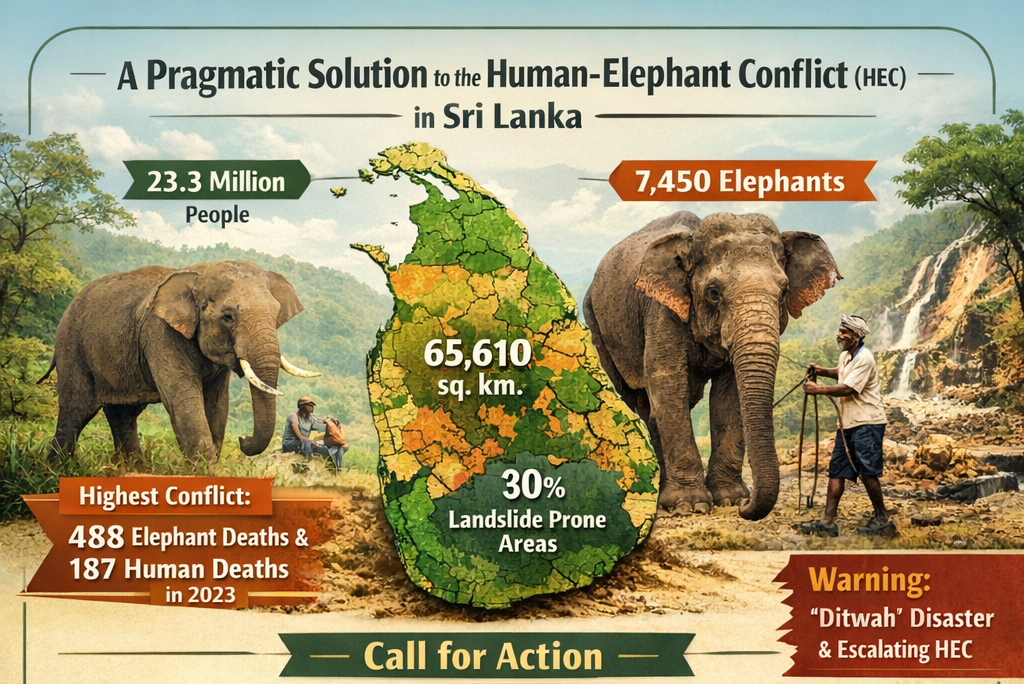AI will lead Sri Lanka to the Next Level of Economic Development

Source:-www.ft.lk
By Dr. Pulasthi Gunawardhana
AI, long the mainstay of science fiction, is today a very real presence in business, manufacturing, government operations and an array of other sectors as AI applications take on a growing number of tasks. AI is accelerating the transition from the traditional to the digital economy, and at the same time shaping the outlines of the emerging digital economy and society. Policymakers will need to have a good grasp of the basic requirements for AI as well as its potential as this technology is set to have a big impact on economic development
The next phase of economic growth will come from redefining the concept of connectivity altogether – using AI to power Intelligent Connectivity. By introducing AI to the mix of the five enabling technologies – Broadband, Data Center, Cloud, Big Data and IoT – basic connectivity can be transformed into Intelligent Connectivity. As a holistic system, Intelligent Connectivity produces synergistic returns across all five enablers that are greater than the sum of their parts. It can enhance human creativity and innovation, and speed the transition from the traditional economy to the digital economy.
How can Sri Lanka Ramp UP for AI?
There’s a degree of overlap, and understanding how each technology works, along with how it enables its peers, is key to knowing when and how to invest. As countries move up the ladder of ICT maturity, their ability to use AI – and the value they derive from it – will increase
ICT enablers are layered, and each layer builds on the layers “below” it. Without sufficient broadband, we can’t deploy the cloud. Without the cloud, big data analytics is impractical. And without big data and IoT, we won’t have many clean data to feed AI systems.
The following is a breakdown of each enabler and its relation to AI.
High-speed Broadband: High-speed broadband is necessary for AI to function across an economy and provide value in all facets of everyday life. Broadband provides the connections that collect and transport data, distribute it for processing, and send instructions back to the smart devices – or people – who need it.
Data Center: Most AI systems are installed, trained and run in data centres. Demand for data storage, microprocessors and servers have skyrocketed in response to AI requirements, reshaping the data centre industry. For instance, deep learning – a subset of AI – requires massive volumes of data to train, test and validate its neural network algorithms. GPU-based processing is ideal for these types of applications, so requirements for data centres that support GPU-based processing are growing.
Cloud: Deep learning frameworks for AI create scalability challenges that can only be met by cloud services. Building AI-capable systems at scale can be prohibitively expensive, largely because training algorithms require a huge amount of computing power. Cloud computing has vast stores of affordable computing power and storage that present cost-effective ways to build AI applications. Cloud with broadband connectivity is the critical infrastructure platform that enables AI adoption throughout an economy.
Big Data: Big data is set to grow as we create and consume more digital content, and as daily life and business become more dependent on digital technology. We see explosive growth of data created by video for entertainment, industry, communications and security. The growth of IoT is massively contributing to data creation too. Every day, millions of gigabytes of data need to be stored, managed, tagged and processed for AI to make use of it. In time, this relationship will become a loop as analytics forms the investigative and learning capability for AI and, in turn, improves the way that data is collected, managed and analyzed.
Internet of Things (IoT): If AI systems are like a digital brain, then IoT devices are like the sensory organs that collect information, and the arms and legs that respond to decisions. IoT sensors provide AI systems with data to understand a given environment, and decisions made by AI systems are then carried out by IoT machines and other devices. An IoT sensor network and smart machines are necessary to unleash the full functionality of AI across an economy
Educating a New Generation of AI Scientists and Programmers
Sri Lanka must incorporate AI in educational curriculum and vocational training to equip the next generation with the skills they need when infrastructure is ready to support AI
According to recent research Globe Connectivity Index (GCI) done by global leading ICT provider Huawei, the scarcity of people to develop algorithms stands out as the most prevalent problem that all countries face. IT talent with the skills needed for a future workforce are scarce in many areas besides AI, where digital transformation is slowed by talent deficits in software development, data science and robotics.
Preparing schools to churn out greater numbers of AI talent is important, but so is educating the next generation of talent for the changes that AI will bring.
For lower-skilled workers who are expected to be the most affected by automation and AI, learning new skills where possible must be the focus. Governments and industries will need to launch upskilling initiatives to address today’s global shortage of qualified workers. Emerging domains like cognitive computing and AI, next-generation security, and cloud architecture will all be in high demand.
In the meantime, for students in non-STEM domains, there should be a strategic shift towards – or integration of – ethics and the humanities. The key is to focus on things machines will be “less good at for longer,” says a 2017 report by the UK Parliament’s Science and Technology Committee. According to the report, school and university curriculum will need to be updated to reflect the world we live in and how it is changing – where problem-solving and creativity are the most important assets. The more education is reformed at every level to prepare students for the new world of AI, the sooner countries will be able to leverage the technology to prepare for the digital economy. All countries, regardless of their ICT maturity, can – and should – prioritize education to ensure even development across all three building blocks of AI readiness.
These actions require intense cooperation between the government and private sectors. Huawei recently introduced Spark – a hybrid accelerator program to support tech startups and cultivate the ecosystem in the Asia Pacific. Startups that are accepted into the Huawei Spark program will receive free Cloud resources, hardware support including AI modules and AI-based intelligent industry solutions, along with open-source software supports such as AI framework, database and OS to develop their own applications, services and hardware appliances. This programme is landing in Sri Lanka, along with Singapore and Hong Kongbecause of Sri Lanka’s global reputation and capabilities in such domains.
Work closely with education and labour departments, educational institutions and technology providers for long-term planning in areas of digital know-how, upskilling, talent cultivation and resource planning. Put infrastructure and processes in place to ensure digital resources are widely and readily accessible. Cultivate specific subsets of the workforce to meet future needs.
Next Steps
According to GCI, the basics of ICT investing have not changed, two new, potentially transformative ingredients in the mix: Intelligent Connectivity and AI. In the face of economic uncertainty and stiff competition, these technologies will provide policymakers with an indispensable tool to accelerate digital economy growth and unearth new opportunities.
ICT Infrastructure Priorities:
Broadband: Foster broader collaboration between governmental organizations, regulatory bodies, industry associations, environmental watchdogs and ICT experts to speed up the build-out of ultra-fast broadband networks on a national level. To increase investment in national broadband, nations at all levels of development should encourage a diversity of investment models to attract private capital investment to improve broadband coverage, speed and stability
Cloud and Data Center: These two enabling technologies are critical infrastructure for data-heavy sectors such as financial services, retail and logistics. Promote them as regional data centre hubs to establish common data-sharing platforms for countries to enhance data access, transparency and insight generation across industries as well as attract foreign investment to consolidate the regional business. As more traditional industries (e.g., manufacturing, healthcare and energy) go digital, cloud and data centres will provide the computing power and storage they need to succeed.
AI: Establish a special innovation task force within government ministries responsible for ICT development. The task force should be responsible for evaluating, tracking, investing and deploying technologies like deep learning, machine learning and smart robotics to optimize government operations and service delivery. Introduce an open and broad regulatory framework to support the development and deployment of next-generation digital technology and foster balanced competition.
Summary:
Some Priorities suggestion for Sri Lanka
1. ICT Infrastructure Priorities in Focus on improving high-speed network access (e.g. FTTH and 4G
• Expand public-private partnerships for ICT infrastructure to accelerate build-out and control costs
• Expand high-speed broadband coverage: increase fibre-to-the-home (FTTH) networks and 4G coverage
• Invest in data centres to provide cloud services once high-speed network coverage expands
2. Workforce Priorities: Focus on education for cloud services and big data
• Develop education programs to ensure the workforce will be capable of using digital devices and have skills needed in the digital economy
• Build programs to upgrade the skills of current workers to meet the needs of digital transformation and industry automation
• Develop advanced programs to prepare IT, workers, for cloud services, big data and IoT. These workers will play a vital role in moving the country through digital transformation
The global digital economy has been growing at a rate two-and-a-half times faster than global GDP over the past 15 years. And we have seen the gradual rise of AI as a new and pronounced element in the development equation.
Developed countries advantage in AI does not mean other nations will be excluded. Sri Lanka can look to commercial AI applications or systems provided by business partners for a start. Unlike more developed countries, Sri Lanka is not weighed down with the baggage of large legacy systems, and with sufficient investment in AI, we will be able to adopt new technology and jump ahead faster than others.

(The writer Dr. Pulasthi Gunawardhana – PhD-Informatic, is currently working as a Senior Lecturer, Department of Information & Communication Technology, Faculty of Technology, University of Sri Jayewardenapura. He has done several number of research related to IT and written several IT related articles to publications)




















